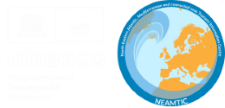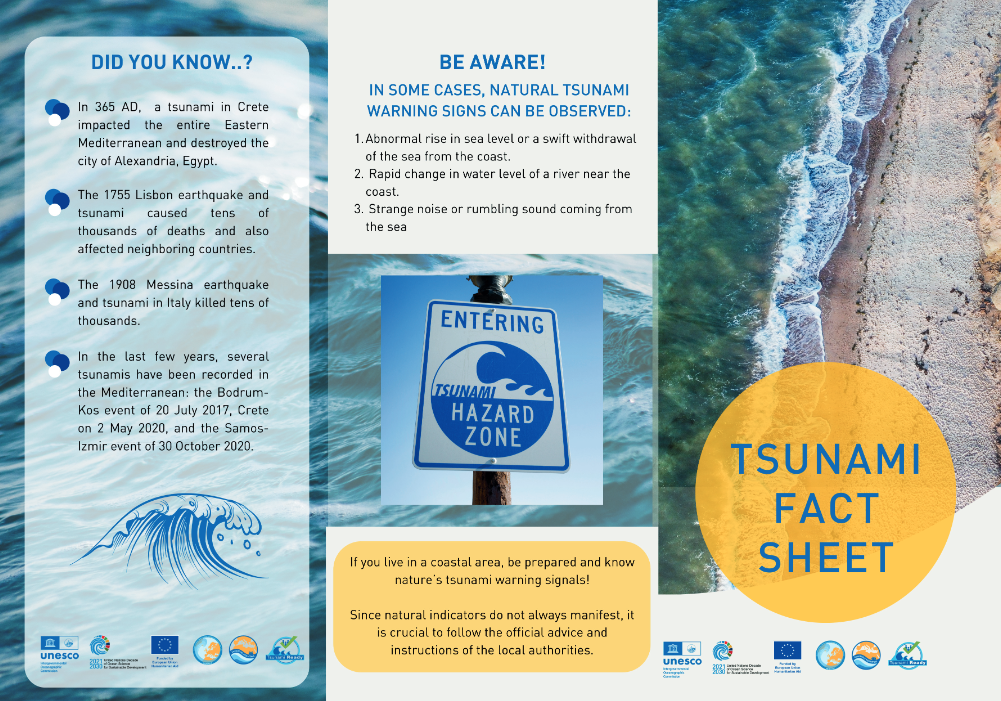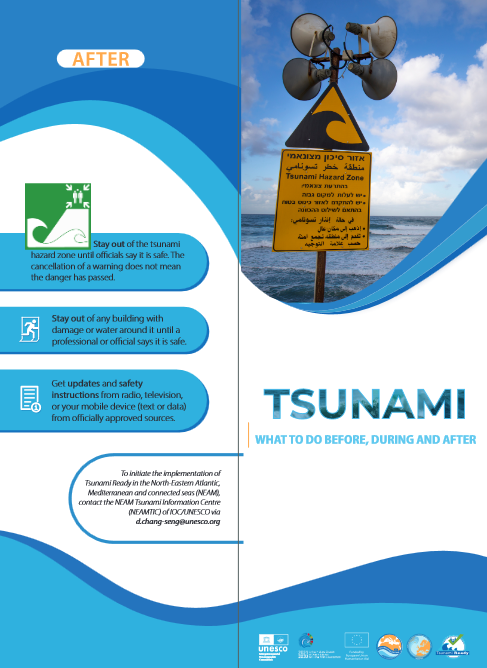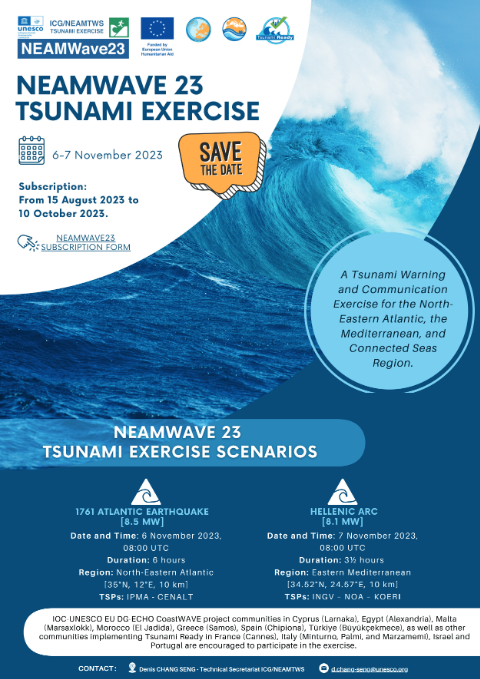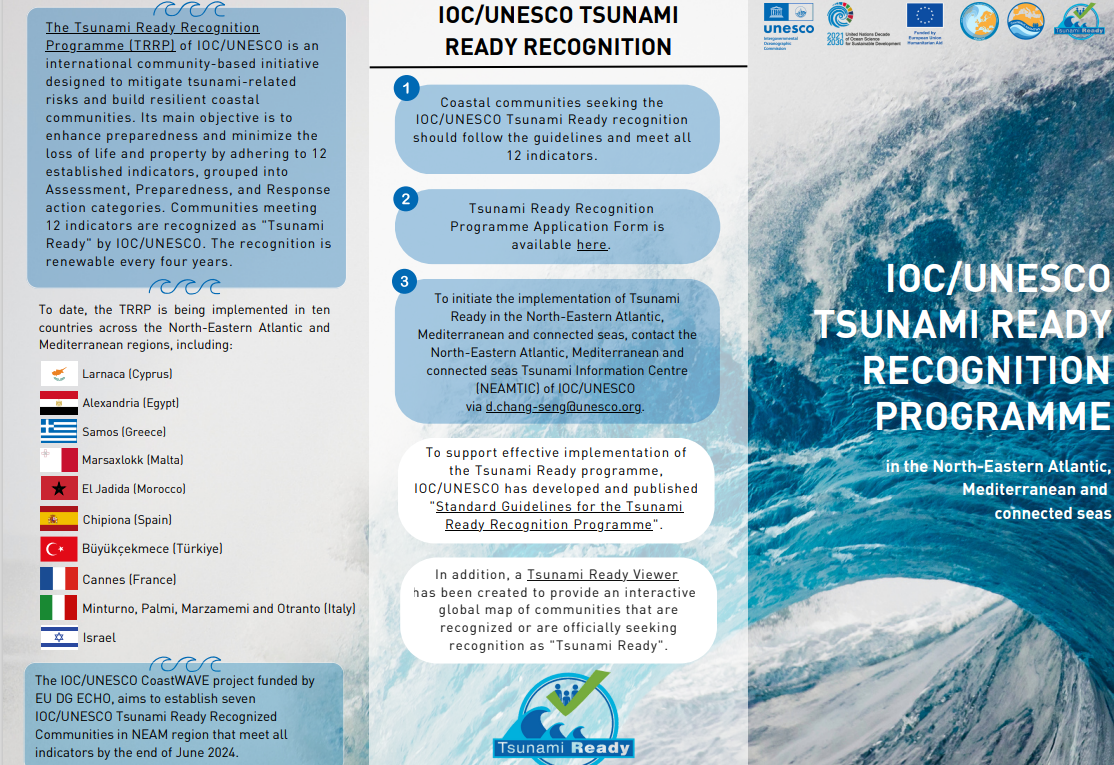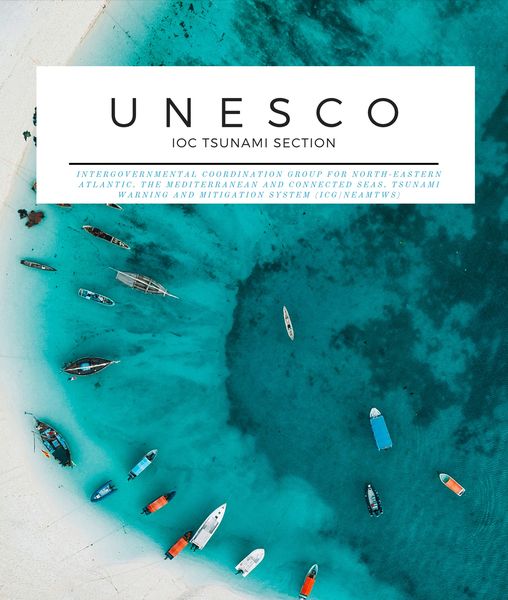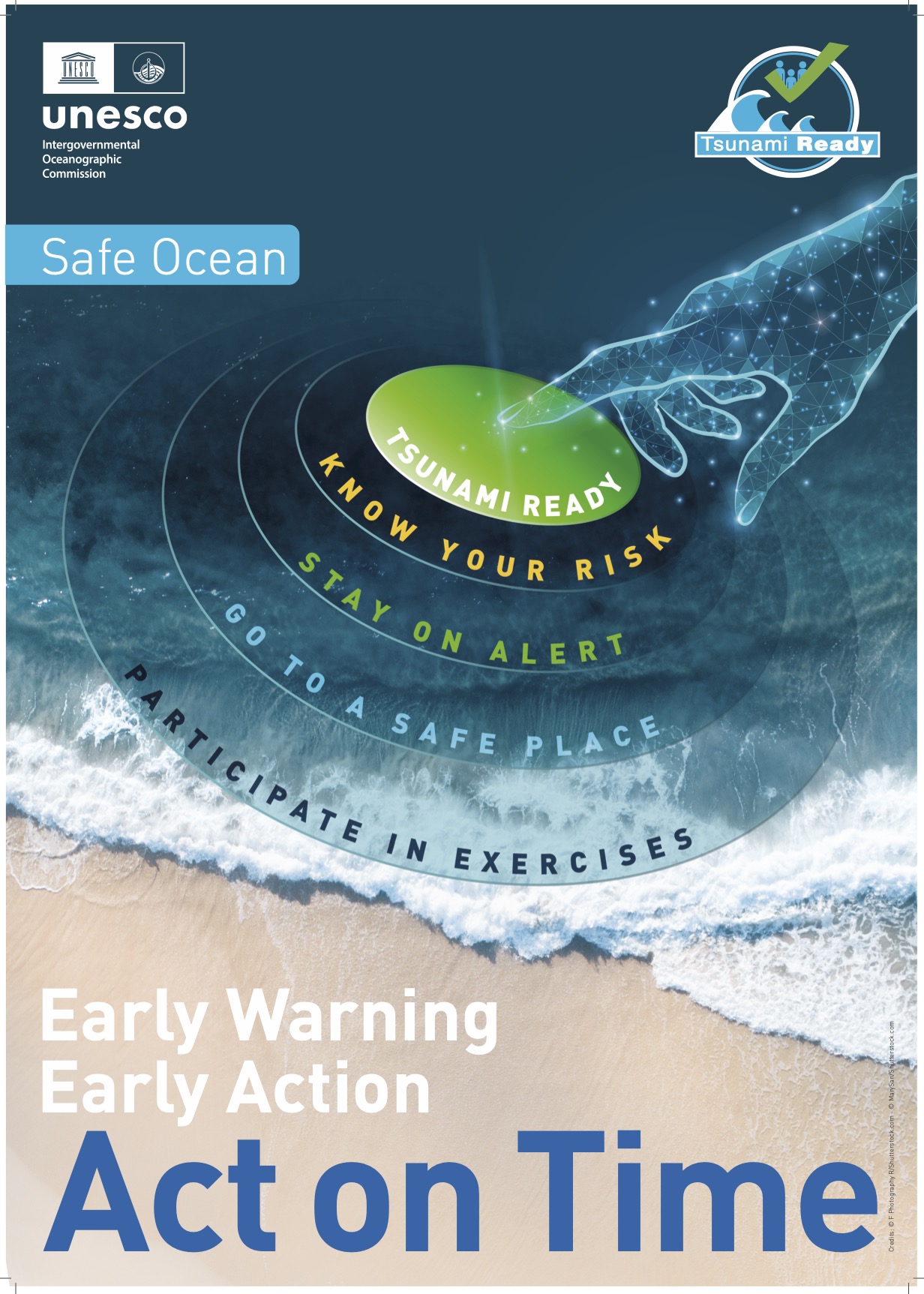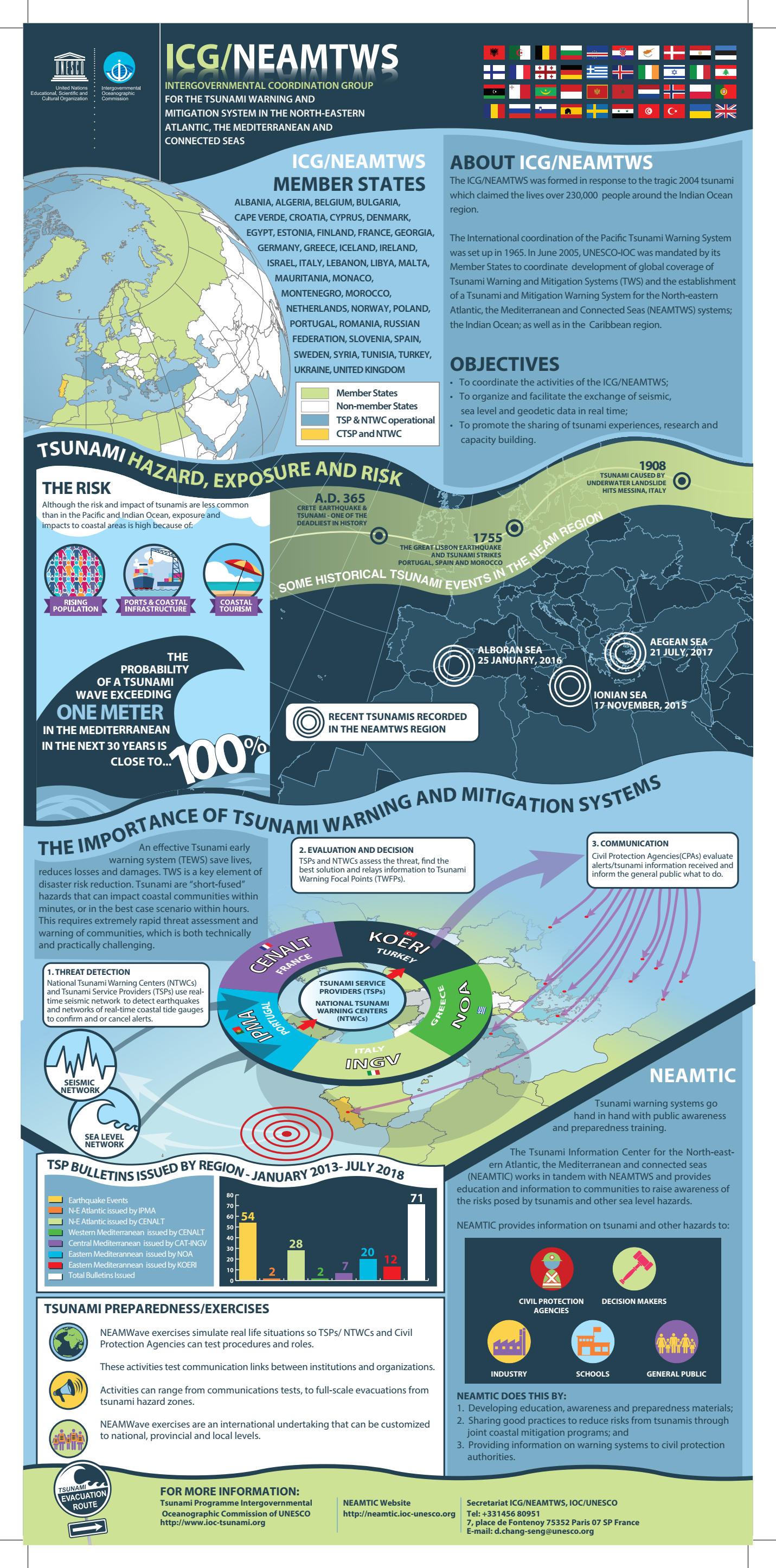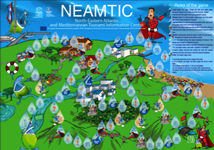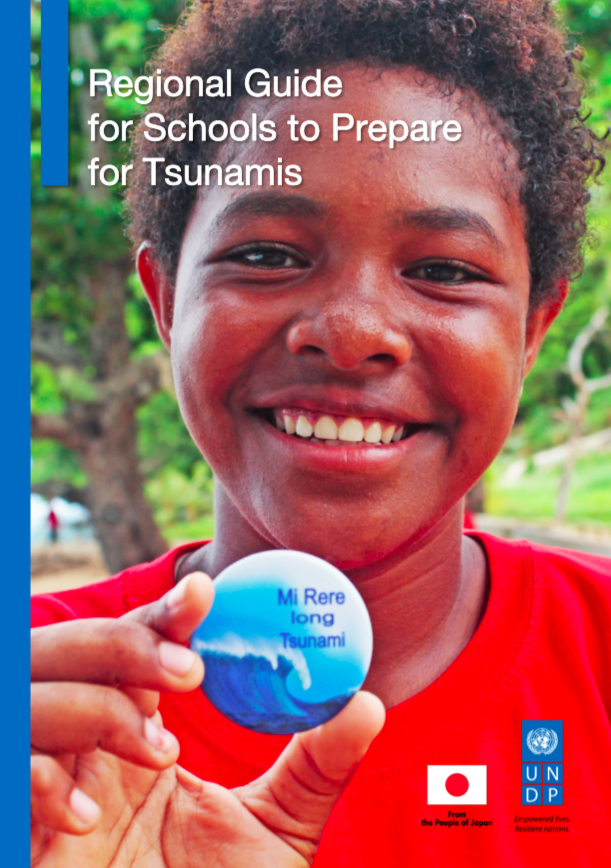End to End TEWS
In response to the tragic tsunami on 26 December 2004, in which over 250,000 lives were lost around the Indian Ocean region, the Intergovernmental Oceanographic Commission of UNESCO (UNESCO/IOC) received a mandate from the international community to coordinate the establishment of an Intergovernmental Coordination Group (ICG) for each region: the Caribbean, the Atlantic and Mediterranean basins and the Indian Ocean, to guide the development of tsunami warning centres in those areas.
An end-to-end tsunami warning system begins with the rapid detection of a tsunami wave and ends with a well prepared community that is capable of responding appropriately to a warning. An effective end-to-end tsunami early warning system could save thousands of lives in a tsunami event.
The operation of a tsunami warning centre is a vital part of an end-to-end tsunami warning system. A tsunami warning centre is not only involved in acquiring and processing data for detecting a tsunami, but also in formulating and disseminating tsunami warnings and connecting with communities at risk to ensure that they understand the warning and have the capacity to respond.
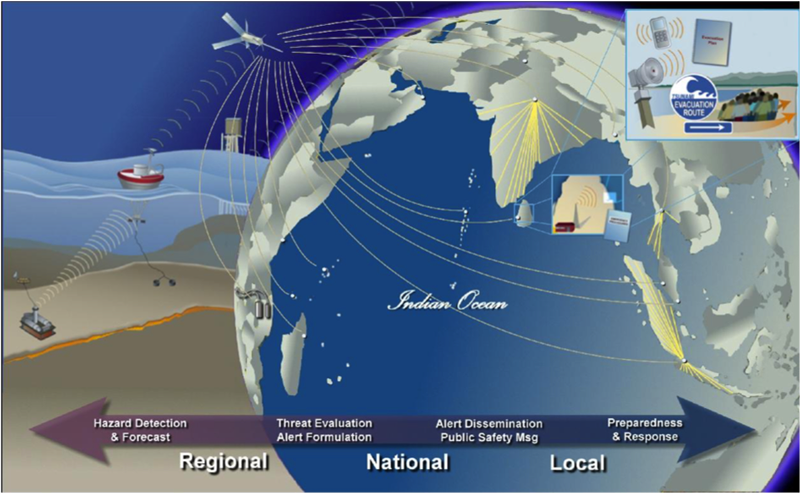
End to End TEWS
Source: U.S. Indian Ocean Tsunami Warning System Program (US IOTWS). 2007. Tsunami Warning Center. Reference Guide supported by the United States Agency for International Development and partners, Bangkok, Thailand. 311 p.
Videos Library
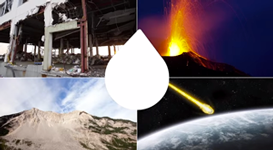
This video library aims at sharing the knowledge produced in the field of disaster risk management and tsunamis.
Workshops and training:
NEAMWAVE23 Tsunami Exercise in Chipiona, Spain (6 November 2023)
Tsunami Evacuation Workshop in Cyprus (September 2023)
CoastWAVE Project Standard Operating Procedures (SOPs) workshop, Ispra, Italy. 5-6 October, 2022
Past events Commemoration videos:
Commemorating the Aegean Sea event on 30 October 2020
World Tsunami Awareness Day 2023
How young children are preparing for tsunami risk in the Mediterranean Region |
Tsunami Risk in Malta (short version) |
Tsunami Risk in Malta (long version)
World Tsunami Awareness Day 2022
Tsunami Exercise Drill and Evaluation, Buyukcekmece, Turkey |
Tsunami Risk in the Mediterranean |
African Conference on Priority Setting & Partnership Development for the UN Decade of Ocean Science for Sustainable Development. Cairo, Egypt. 10 - 12 May, 2022.
African Ocean 2022 |
World Tsunami Awareness Day 2021
CoastWAVE Project, EU DG-ECHO and UNESCO/IOC |
PSA Short Animation |
World Tsunami Awareness Day 2020
Italy joining the tsunami ready global community |
Kos, Greece and Bodrum, Turkey, tsunami ready |
Israel is getting ready to tsunami threats |
UNESCO Disaster Risk Reduction |
World Tsunami Awareness Day 2017
France |
Portugal |
Preparing for Tsunamis in the Mediterranean
An early-warning system can be effective only when the population is well aware of the tsunami phenomenon and knows what to do in case of an emergency. These videos explain how tsunamis occur and provide an overview of the history of tsunamis in the Mediterranean region. They include a brief presentation of the Tsunami Early Warning and Mitigation System in the North-eastern Atlantic, the Mediterranean and connected seas. Tsunamis are a rare occurrence in the Mediterranean, leading to a lack of awareness and preparedness that put these densely populated coasts at greater risk.
Preparing for Tsunamis in the Mediterranean |
Se préparer aux tsunamis en Méditerranée |
نظام إنذار تسونامي لمنطقة شمال شرق المحيط الأطلسي والبحر المتوسط والبحار المتصلة به |
A Guide to tsunamis for hotels : tsunami evacuation procedures
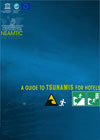
Manuals and guides; 69
Tsunami preparedness civil protection: good practices guide
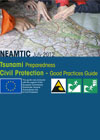
Manuals and guides; 65
SC-2013/WS/7
Coastal managment approaches for sea-level related hazards: case studies and good practices
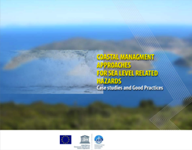
Manuals and guides; 61
Eighteenth Session of the NEAMTWS Held in Paris, France. Praise for NEAMTWS Advances Amidst Emerging Challenges
The Intergovernmental Coordination Group for the Tsunami Early Warning and Mitigation System in the North-Eastern Atlantic, the Mediterranean and Connected Seas (ICG/NEAMTWS) met in Paris, France for its 18th Session on 6–8 February 2024. A key highlight was the election of new ICG/NEAMTWS officers Mr Alessandro Amato, Italy as the new ICG/NEAMTWS Chairperson and Mr Amr Hamouda (Egypt), Mr Ignacio Aguirre Ayerbe (Spain) for vice Chairpersons for the period 2024-2025. High on the agenda was the status of implementation of UNESCO-IOC Tsunami Ready Recognition Programme, with Cannes (France) becoming the first recognized Tsunami Ready community in NEAM region. The meeting also hailed the finalization and publication of the ICG/NEAMTWS 2021-2030 Strategy Document as an IOC Technical Series and Brochure; the conduction of regional tsunami exercise (NEAMWave23); the new approved two-years Directorate-General for European Civil Protection and Humanitarian Aid Operations (DG-ECHO) funded CoastWAVE Project Phase-II. The group decided to establish a new task team on non-seismic tsunamis and plan the next regional tsunami exercise in 2025.
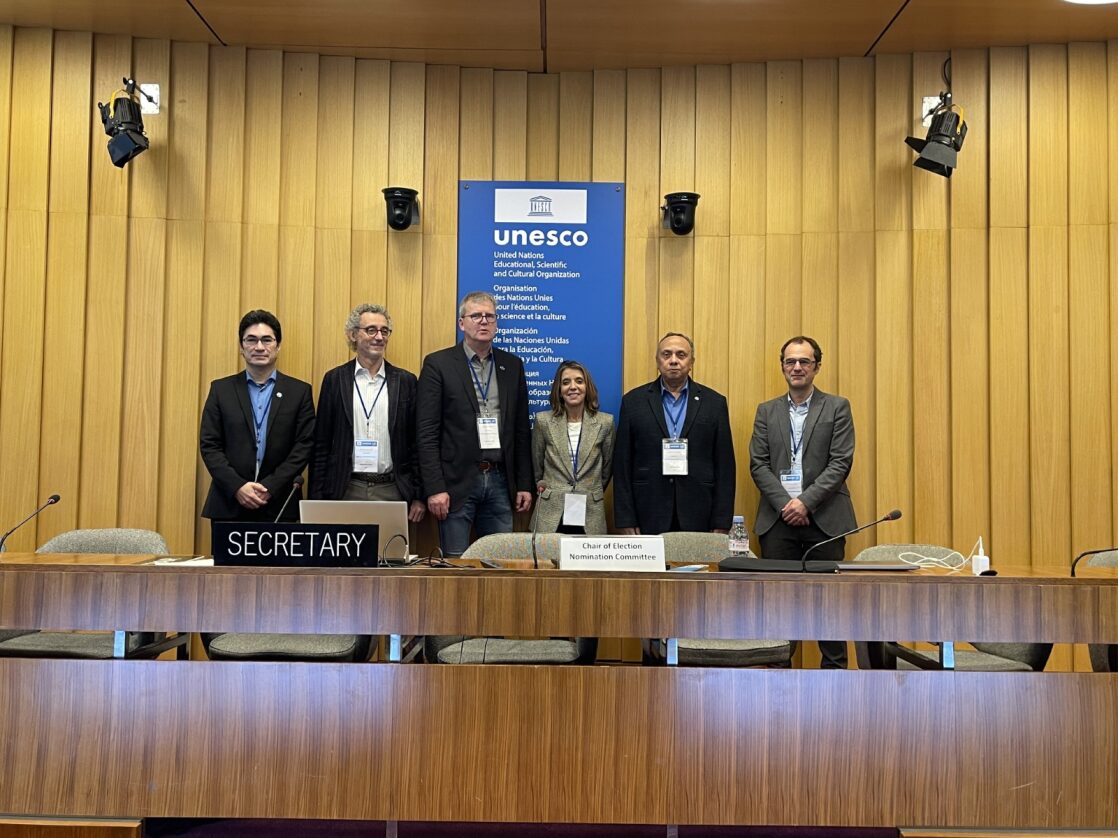
Cannes Municipality Achieves Historic Recognition as UNESCO-IOC Tsunami Ready Community
In a groundbreaking achievement, the Municipality of Cannes (France) has been officially recognized as the first UNESCO-IOC Tsunami Ready community in mainland France and the Mediterranean. The momentous event unfolded on January 19, 2024, at the Salon Marianne at City Hall, marking a pivotal milestone not only for Cannes but for the entire region.
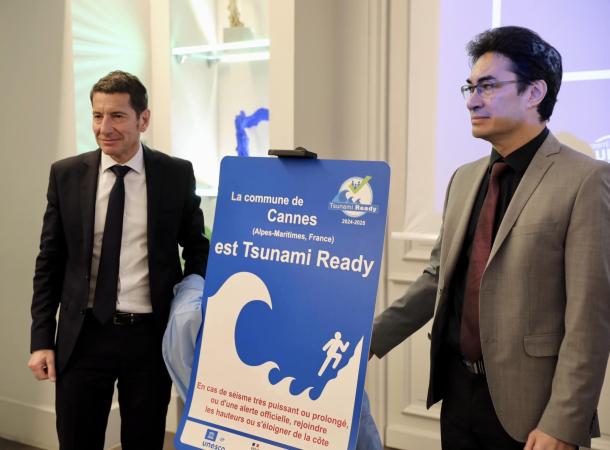
New Date and Venue: CoastWAVE Project meeting and 18th Session of the Intergovernmental Coordination Group for the Tsunami Early Warning and Mitigation System in the North-eastern Atlantic, the Mediterranean and Connected Seas
Please be informed that the ICG/NEAMTWS XVIII Session and CoastWAVE Project Workshop: Key Milestones, Challenges, and Opportunities, will take place from 5-8 February 2024 at UNESCO Headquarters in Paris, France. Stay tuned for further updates and information regarding the event.
For more information, please visit the event site on OceanExpert.
